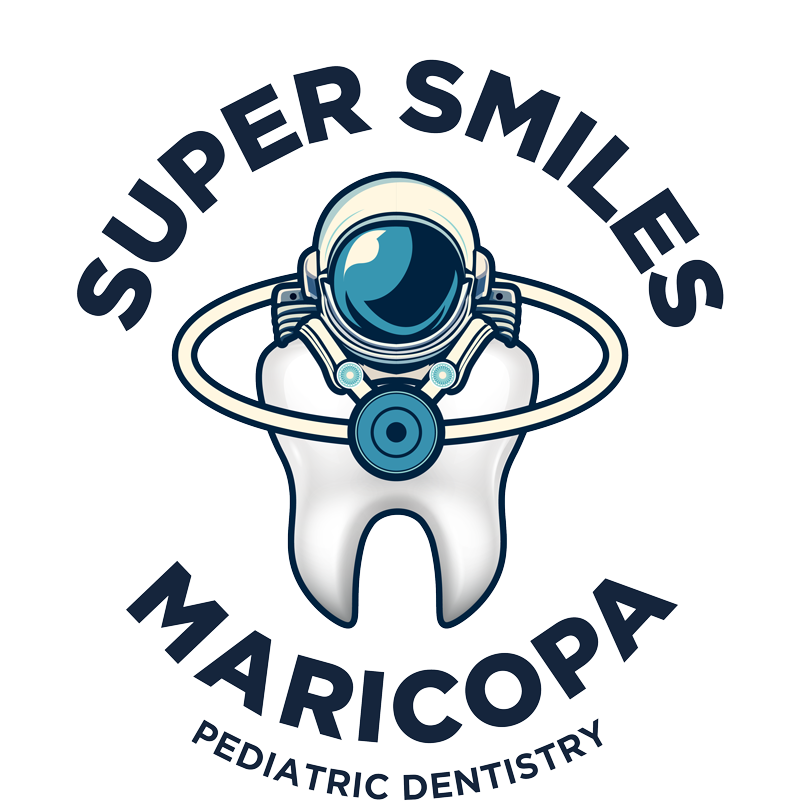
Wisdom Teeth: Removal or Not?
As children grow into their teenage years, one of the most common dental concerns they may face is the development of wisdom teeth. These third molars typically begin to emerge between the ages of 17 and 25, and they often lead to discussions about whether they should be removed. At
Super Smiles 4 Kids, we’re committed to providing the best dental care for children and teenagers in Maricopa, AZ, and one of the most frequent questions we receive is: Should wisdom teeth be removed, or is it better to leave them alone? In this blog post, we’ll explore this question in depth to help parents make informed decisions about their child’s dental health.
What Are Wisdom Teeth?
Wisdom teeth are the final molars to appear at the back of your mouth. Typically, you'll have four of them: two on your upper jaw and two on your lower jaw. These teeth were essential for our ancient ancestors, who had a diet rich in raw plants, meat, and roots, which required more chewing power. Over time, human jaws have become smaller due to changes in diet and lifestyle, which means there’s often not enough room for these teeth to emerge properly.
Although wisdom teeth can be beneficial in cases where they align correctly and there’s sufficient room in the mouth, for many individuals, these teeth become impacted, misaligned, or pose other health risks. As a result, the question of whether to remove or keep wisdom teeth depends on several factors that we’ll cover in this article.
Common Issues with Wisdom Teeth
For many people, wisdom teeth cause problems because they don’t emerge in the same way as other teeth. Some of the most common issues associated with wisdom teeth include:
a. Impaction
When there isn’t enough space in the mouth for wisdom teeth to erupt fully, they can become impacted, meaning they remain trapped beneath the gum line or only partially erupt. Impacted wisdom teeth can cause significant discomfort, swelling, and pain. They can also lead to infection, cyst formation, and damage to surrounding teeth.
b. Crowding
Wisdom teeth can push against neighboring teeth, leading to crowding and misalignment of the entire set of teeth. This is particularly problematic for individuals who have already undergone orthodontic treatment, as the shifting of teeth can undo years of progress.
c. Decay and Infection
Since they're positioned at the back of the mouth, wisdom teeth can be challenging to brush thoroughly. This makes them more susceptible to decay, gum disease, and infection. Food particles and bacteria can easily get trapped around wisdom teeth, leading to dental health problems that may require more extensive treatment if left untreated.
d. Sinus Problems
In some cases, wisdom teeth on the upper jaw can cause sinus pain, pressure, or congestion as they grow. This happens because the roots of the upper wisdom teeth are located close to the sinuses, and their development can interfere with sinus function.
These issues often prompt dentists to recommend wisdom teeth removal as a preventive measure.
Signs That Wisdom Teeth May Need to Be Removed
While not everyone needs their wisdom teeth removed, there are several signs that indicate it may be time to consider extraction:
- Pain or discomfort in the back of the mouth: This is one of the most common signs of problematic wisdom teeth.
- Swelling or redness in the gums around the wisdom teeth: Gum inflammation often indicates an infection or impaction.
- Frequent headaches or jaw pain: Misaligned wisdom teeth can place extra pressure on your jaw and surrounding areas, leading to chronic pain.
- Crowding of other teeth: If you notice changes in the alignment of your child’s teeth, it could be due to wisdom teeth pushing them out of place.
- Difficulty opening the mouth or chewing: Impacted wisdom teeth can affect how the jaw functions, making it hard to open the mouth fully or chew food comfortably.
If your child is experiencing any of these symptoms, it’s important to consult with a dentist to determine the best course of action.
The Removal Process: What to Expect
If it is determined that your child’s wisdom teeth need to be removed, you may have questions about the procedure. Here’s a general overview of what to expect:
a. Consultation
The first step is a consultation with a dentist, where they will evaluate your child’s wisdom teeth using X-rays to determine their position and any potential risks. Based on this evaluation, the dentist will provide recommendations on whether extraction is necessary.
b. Preparation
Before the extraction, the dentist or oral surgeon will explain the procedure and any pre-operative instructions. This may include guidelines for fasting before the surgery if general anesthesia is required.
c. The Procedure
Wisdom tooth removal is usually done using local anesthesia, sedation, or general anesthesia, depending on how difficult the extraction is and how comfortable the patient wants to be. The dentist will make an incision in the gum tissue, remove the tooth (or teeth), and close the area with stitches if necessary.
d. Recovery
After the procedure, there will be a recovery period during which your child may experience some swelling, pain, and discomfort. To ease these symptoms, you can take pain medication and use ice packs. The dentist will provide instructions on how to care for the extraction site, including what foods to avoid and how to keep the area clean. Full recovery usually takes about one to two weeks.
Should Wisdom Teeth Always Be Removed?
The decision to remove wisdom teeth is personal and depends on each person's situation. Not all wisdom teeth need to be extracted, and in some cases, they can remain in place without causing any issues. Here are a few factors to consider when deciding whether to remove wisdom teeth:
a. Proper Alignment
If the wisdom teeth are growing in straight, aligned with the other teeth, and not causing any crowding, removal may not be necessary. However, regular dental checkups are important to monitor their development.
b. Potential for Future Problems
Even if wisdom teeth aren’t currently causing issues, they may lead to problems later in life. Impacted teeth, for example, can develop cysts or infections over time, which can damage nearby teeth and bone. In these cases, preemptive removal may be the best option.
c. Age Considerations
The timing of wisdom teeth removal can also be important. Younger patients tend to heal more quickly and experience fewer complications from extraction. If wisdom teeth are likely to cause problems in the future, removing them during the teenage years is often recommended.
At Super Smiles 4 Kids, we carefully assess each child’s dental health and provide personalized recommendations based on their needs. Our goal is to ensure long-term oral health and comfort for your child.
Contact Us for Expert Pediatric Dental Care
If you have concerns about your child’s wisdom teeth or any other dental issues, don’t hesitate to reach out to Super Smiles 4 Kids. We specialize in providing high-quality pediatric dental care in Maricopa, AZ, and we’re here to guide you through every step of the process. Whether it’s a consultation about wisdom teeth or routine dental checkups, our team is committed to your child’s dental health and overall well-being.
Call us today at
(520) 568-3828 to schedule an appointment or ask any questions you may have about your child’s wisdom teeth. We also do
limited orthodontics,
baby root canal procedures,
digital X-rays,
emergency dental services, and
more. We look forward to providing the exceptional care your family deserves.
FAQ










